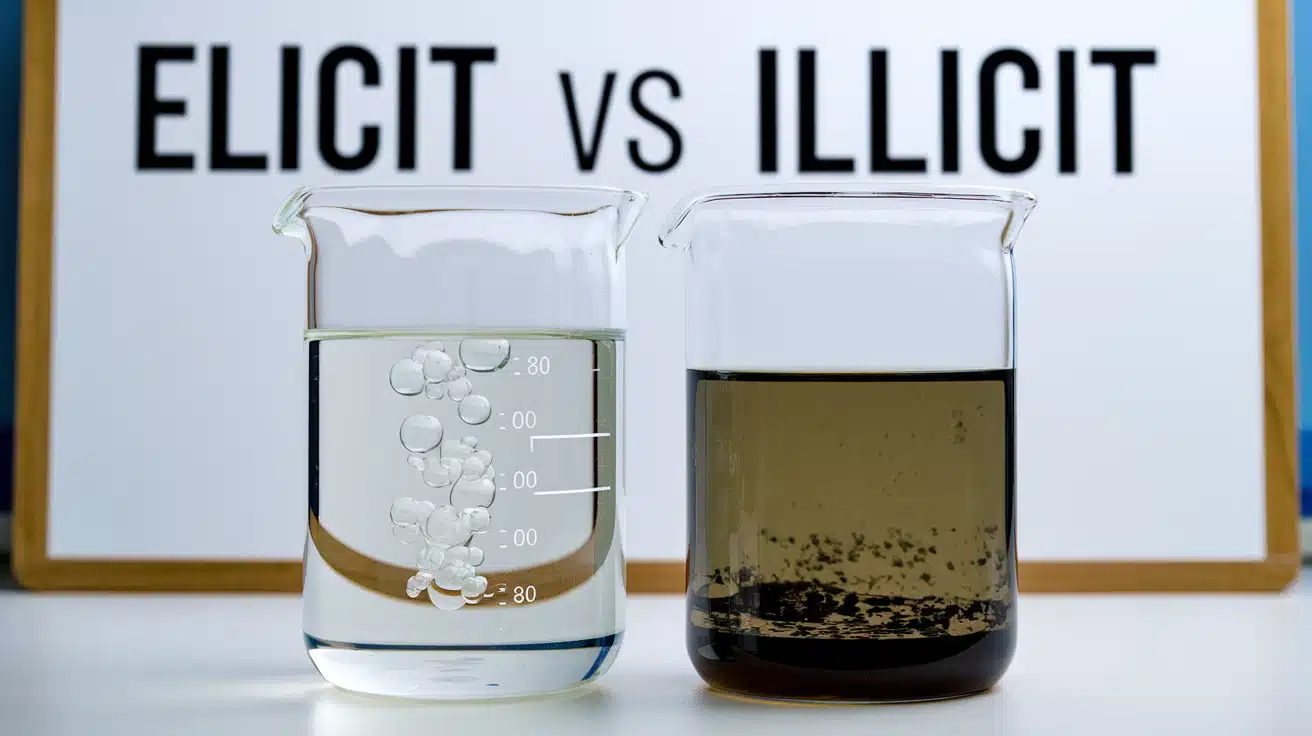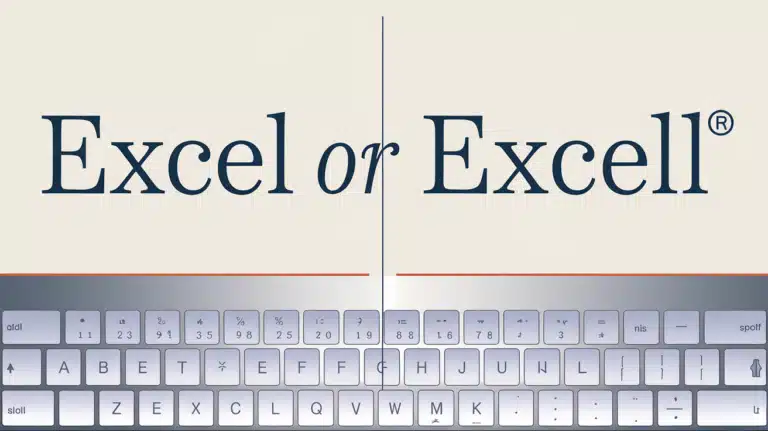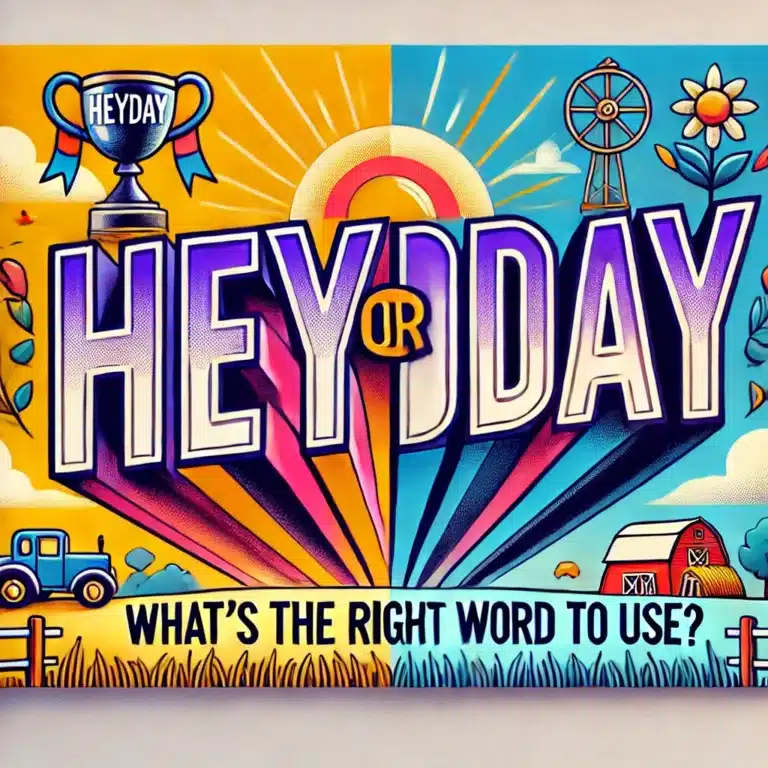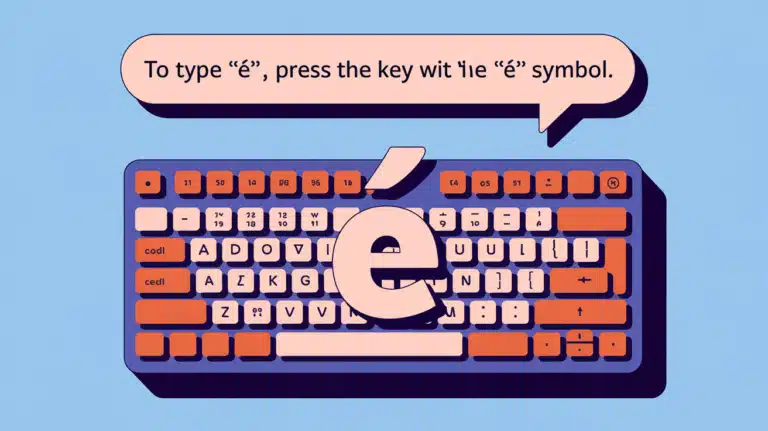Understanding Elicit vs Illicit – Let’s Learn English Together
Mastering the English language can be tricky, especially when two words sound alike but have entirely different meanings. One common confusion is between “elicit” and “illicit.” These words may seem similar, but their definitions, usage, and implications are quite distinct. In this post, we’ll dive deep into elicit and illicit, their differences, and tips on how to avoid mixing them up. Let’s explore how mastering these two words can significantly improve your communication and writing skills.
Elicit vs Illicit: A Quick Reference
To help you quickly understand the distinction between these commonly confused words, here’s a simple breakdown:
| Word | Part of Speech | Definition | Usage Example |
|---|---|---|---|
| Elicit | Verb | To draw out or evoke a response, reaction, or confession | “The teacher’s question was meant to elicit a thoughtful response from the students.” |
| Illicit | Adjective | Refers to something illegal or forbidden by law or social rules | “The police arrested him for his involvement in illicit drug trade activities.” |
As you can see, elicit is a verb that deals with bringing out or evoking a reaction or response, while illicit is an adjective referring to something illegal or rule-breaking.
What Does Elicit Mean?
Definition of Elicit
The word elicit is a verb that means to “draw out” or “bring forth” a reaction, emotional response, or information from someone. It is commonly used when someone asks questions or prompts an answer in conversations or formal settings.
Examples of Elicit in Sentences
- “The detective’s questions were designed to elicit a confession from the suspect.”
- “The emotional movie managed to elicit tears from the audience.”
- “Her speech was crafted to elicit a positive emotional response from the crowd.”
Common Contexts Where Elicit is Used
Elicit is frequently found in contexts where responses or reactions are expected or required. Below are some common areas where you might encounter this word:
- Interrogations or interviews: “The journalist’s probing questions sought to elicit revealing answers.”
- Therapy sessions: “The counselor aimed to elicit the patient’s true feelings about the incident.”
- Debates or discussions: “He hoped to elicit a strong reaction from his opponent during the debate.”
What Does Illicit Mean?
Definition of Illicit
Illicit is an adjective that refers to something that is not allowed by law or social customs. When something is described as illicit, it usually involves activities that are illegal or against the rules, such as illicit affairs, illicit drug trades, or other forms of rule-breaking behavior.
Read More About : Repetition vs Parallelism Unlocking the Secrets of Powerful Writing
Examples of Illicit in Sentences
- “The government cracked down on illicit drug trade operations in the region.”
- “He was involved in an illicit business deal that violated several laws.”
- “Their illicit affair became the scandal of the town.”
Common Contexts Where Illicit is Used
The word illicit is often used to describe activities that go against legal or social standards, particularly in relation to crime or unethical behavior:
- Illegal activities: “The authorities were focused on shutting down illicit poaching operations.”
- Affairs: “Their illicit love affair was kept a secret for years.”
- Smuggling and trafficking: “The border patrol intercepted an illicit shipment of goods.”
Elicit vs Illicit: How to Remember the Difference
These words might seem tricky at first, but with a few helpful memory aids, you’ll never confuse them again.
Memory Tricks for Elicit
- Think of Elicit and Evoke as similar. Both words start with “E” and deal with drawing out a response or reaction.
- Imagine you are eliciting a reaction – you’re pulling something out of someone, like a confession or an emotional response.
Memory Tricks for Illicit
- Illicit starts with “I” – think of Illegal, Immoral, or Inappropriate. All these words are negative and associated with breaking the rules.
- Consider the phrase Illicit = Illegal to help reinforce the connection to things that are against the law.
Common Mistakes Between Elicit and Illicit
People often misuse these two words because of their similar pronunciation. Here are some typical mistakes and how to avoid them:
Common Mistake 1: Using “Elicit” When You Mean “Illicit”
- Incorrect: “The police arrested him for his elicit activities.”
- Correct: “The police arrested him for his illicit activities.”
In the incorrect sentence, “elicit” is used when the correct word should be “illicit,” as it refers to illegal activities.
Common Mistake 2: Using “Illicit” When You Mean “Elicit”
- Incorrect: “Her kind words were meant to illicit a smile.”
- Correct: “Her kind words were meant to elicit a smile.”
In this case, the correct word is “elicit,” because the action is about drawing out a response (a smile), not something illegal.
Real-world Examples
Now that we’ve covered definitions and common mistakes, let’s take a look at some real-world examples to see how these words are used in everyday contexts.
Elicit in Action
In the field of psychology, therapists often work to elicit emotional responses from their patients. For example, a therapist might ask questions designed to draw out feelings that the patient has been reluctant to express.
In the context of marketing, companies often use strategies to elicit consumer responses, whether through advertisements designed to provoke a particular emotion or surveys intended to evoke honest feedback.
Illicit in Action
In law enforcement, illicit activities like drug trade and poaching are constantly monitored. Criminals engaging in illicit behaviors face serious consequences because they are violating established rules and laws.
In social settings, illicit relationships such as affairs can have devastating impacts on personal lives, often leading to scandals and legal issues.
Quiz: Test Your Knowledge
Before we wrap up, let’s put your newfound knowledge to the test with a quick quiz:
Which word fits best in the following sentences?
- “The lawyer’s intense questioning was intended to _ a confession from the witness.”
- (a) illicit
- (b) elicit
- “Their involvement in the _ drug trade was revealed during the investigation.”
- (a) illicit
- (b) elicit
- “The movie’s emotional scenes were crafted to _ tears from the audience.”
- (a) illicit
- (b) elicit
Answers: 1 – (b) elicit, 2 – (a) illicit, 3 – (b) elicit
Elicit vs Illicit: The Takeaway
Elicit and illicit may sound alike, but they have distinct meanings. Here’s a quick summary:
- Elicit is a verb that means to draw out a response, reaction, or information.
- Illicit is an adjective that refers to something illegal or forbidden.
By understanding the clear distinction between these two words, you’ll avoid common mistakes and write with confidence. Whether you’re crafting a legal document, delivering a speech, or simply writing an email, knowing the difference will help you communicate more effectively.
Conclusion
Both elicit and illicit play unique roles in English, and learning to use them properly is a small but important step toward mastering the language. With the help of memory tricks, examples, and careful usage, you can easily distinguish between these two confused words. Next time you’re writing, take a moment to ask yourself: Am I eliciting a reaction, or is this illicit behavior?
By keeping these concepts in mind, you’ll not only improve your writing but also gain a deeper understanding of the language itself.







